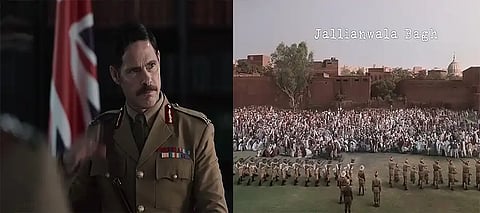

The much-awaited series The Waking of a Nation was released on SonyLiv on March 7, 2025. Directed by Ram Madhvani and produced by Amita Madhvani, The Waking of a Nation delves deep into the Jallianwala Bagh massacre that took place in Amritsar, Punjab. The Waking of a Nation basically revolves around the Hunter Commission constituted by the British Empire in India, to submit an investigation report on the Jallianwala Bagh Massacre. The series revolves around Advocate Kantilal Sahni, who is the only Indian part of the Hunter Commission. Since the series is based on a true story, fans are digging deep into The Waking of a Nation Real Story or The Waking of a Nation True Story. Below is all you need to know about The Waking of a Nation True Story-
The Waking of a Nation highlights the Hunter Commission through the lens of Advocate Kantilal Sahni. As per reports, Advocate Kantilal Sahni's character is loosely based on advocate Sir Chimanlal Hiralal Setalvad, who cross-examined Dyer. Interestingly, the makers of the series first showcased that The Waking of a Nation is inspired by true events, and then the true event tagline was omitted. It highlighted that the information present in the public domain may be biased and not entirely based on facts, as the British Empire was in power in India.
The Hunter Commission had 7 members on the panel, namely- Chairman – Lord William Hunter, ex- Solicitor-General, W.F. Rice, Additional Secretary to the Government of India (Home Department), Justice G.C. Rankin, Judge of the High Court, Calcutta. Major General Sir George Barrow, Commandant of the Peshawar Division, Sir Chimanlal Setalvad, Pandit Jagat Narayan, Sardar Sultan Ahmed Khan.
As per the information available, the Hunter Commission submitted its report on 26th May 1920. In their report, the majority of the members only issued a formal scolding to Dyer for a 'mistaken concept of duty'. It concluded that the gathering was not the result of a conspiracy by Indians. Martial law declared in Punjab was justified.
What was even more shocking was that it concluded that Dyer's firing at the people was justified, except that he should have given a warning first and that the duration of the firing should have been shortened. During the cross-examination, Dyer stated that he had planned to fire at the crowd, not just to disperse, but to instil a moral impact so as to prevent a mutiny.